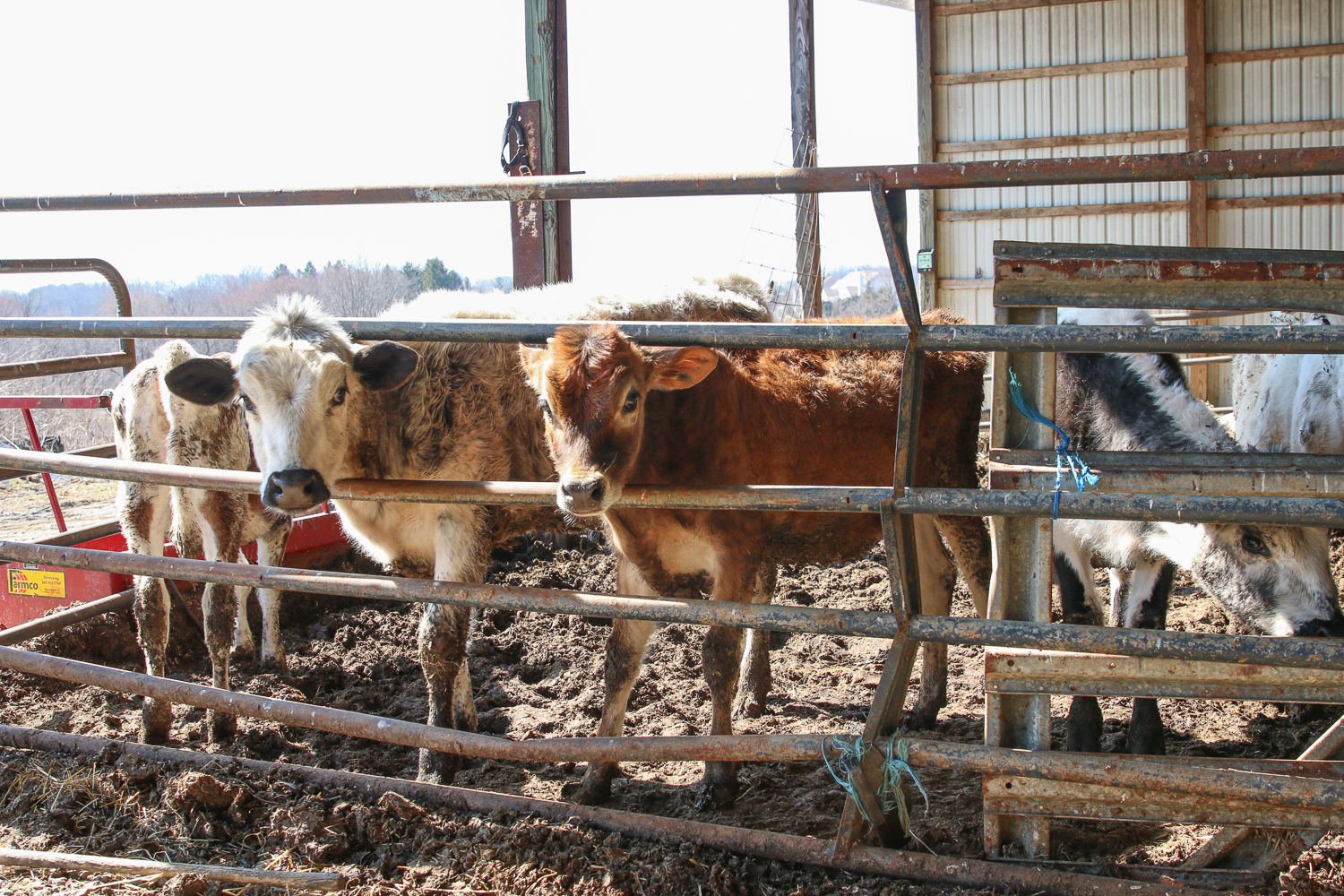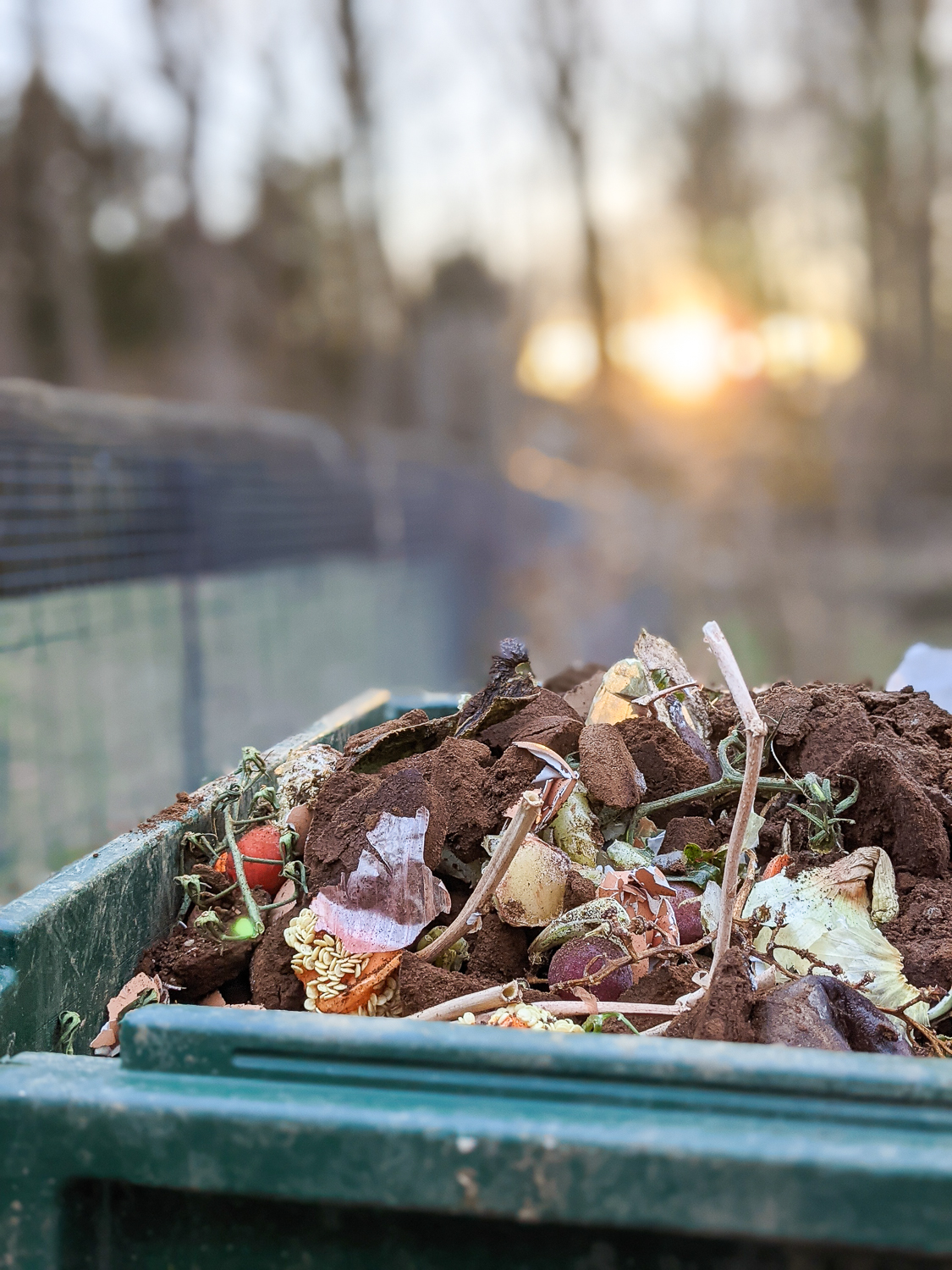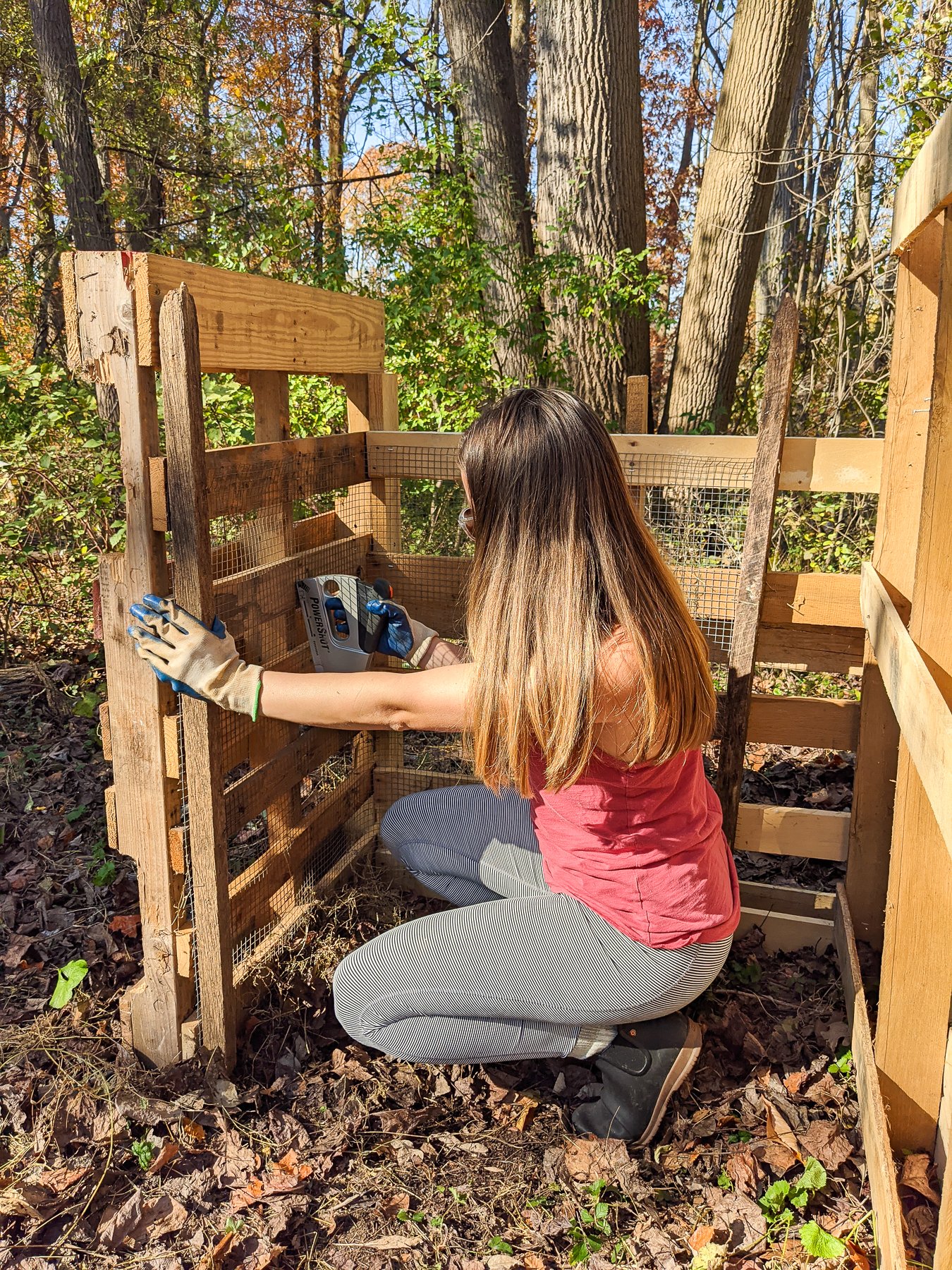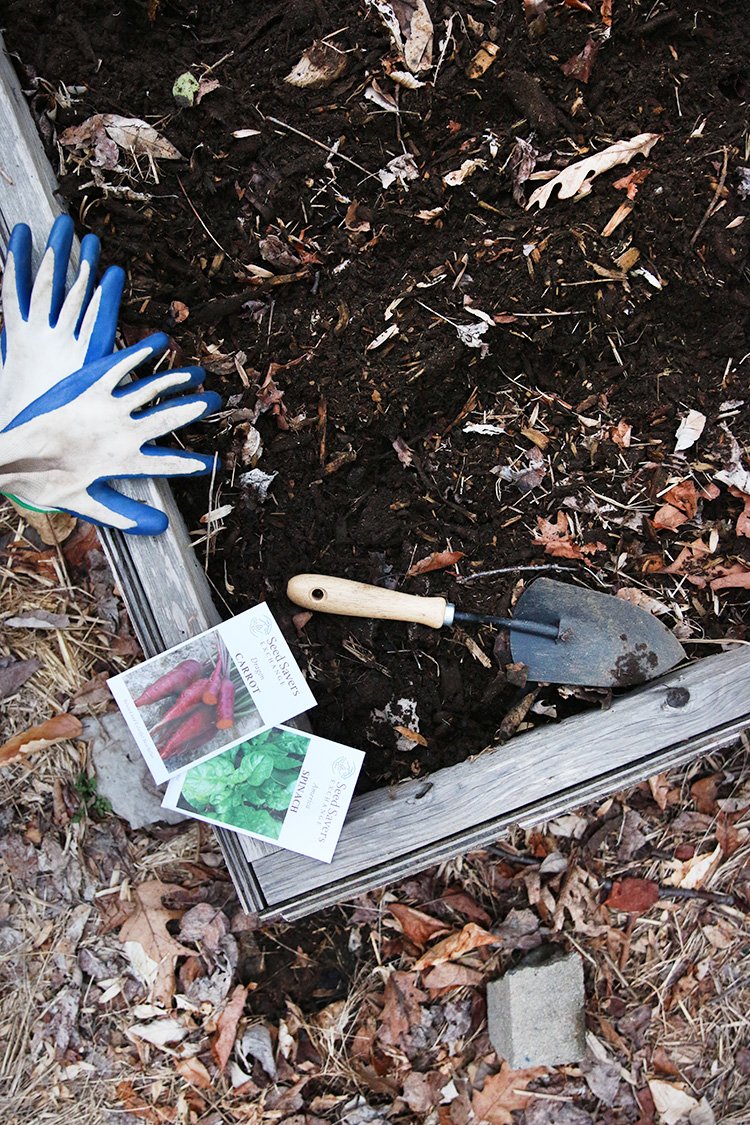11 Important Benefits of Composting
Composting is a pretty big deal, and it’s woefully underfunded and overlooked as an environmental solution in practice. Climate scientists and environmentalists know the benefits of composting quite well, but we’ve yet to implement composting at scale in far too many places.
If you love composting, join the club! If you think it’s gross or expensive or problematic for your community, I encourage you to read on about the many benefits of composting to consider if it might be worth the investment for your family or community. For a small price, it can have an outsized impact on making our planet and our communities healthier places to live.
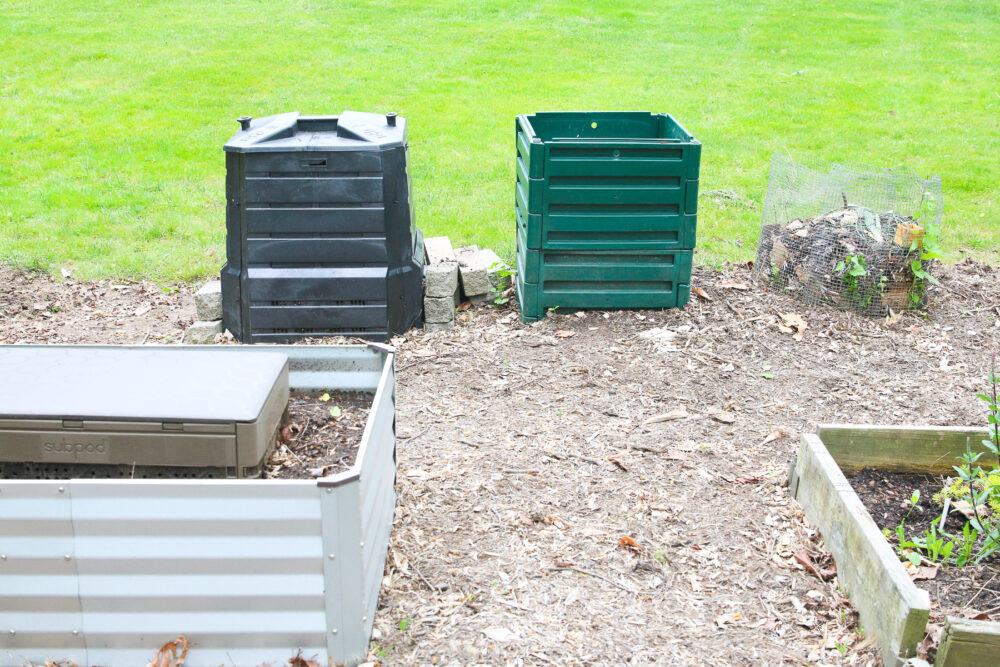
In all the time I’ve been writing about composting, testing out various methods to share reviews, and helping people find what method of composting is best for them, I’ve never really taken the time to summarize all of the amazing benefits of composting in one place.
Composting is a natural process of recycling organic material, such as food scraps and yard waste, into nutrient-rich soil. It’s an environmentally friendly way to reduce waste, improve soil health, reduce greenhouse gas emissions, fight climate change, save money, and build community.
In many places around the world, composting is second nature. Municipalities provide composting services. People compost in their own yards. You can compost at home, in a backyard or balcony, at a shared community compost space, or at a larger facility. It’s just an everyday part of life.
But somehow, in the United States, we’ve lost sight of this simple, regenerative, and affordable lifestyle habit that provides so much value and helps clean up our very broken waste management system. A few places around the country are beginning to incorporate composting into their regulatory structures and municipal service offerings. They’re seeing the benefits of composting for their residents and community at large.
But we are still a far cry from incorporating composting into mainstream lifestyles in a meaningful way, despite the fact that food waste is one of the top environmental problems the world currently faces.
Everyone seems to know, or think they know, that composting is gross. However, I’d argue that with the right infrastructure, composting is not gross at all. The problem is just that we don’t have the proper infrastructure in place to help people manage their food waste effectively and efficiently.
If conversations I have with friends are any indication, most people don’t understand the trade-offs they’re making when choosing to throw their food waste in the trash or put it down a garbage disposal. Food waste in our landfills releases massive amounts of methane, a potent greenhouse gas, that contributes to global warming and climate change. (We’re also just running out of space in our landfills, so we need to stop sending so much of anything to the trash.)
As for tossing food waste down a garbage disposal, it may be a better alternative than putting it in the trash for now. But the water treatment systems throughout our country are severely aging and deteriorating. And they will be prohibitively expensive to fix and replace in many cases. Composting is a great solution that reduces waste in our landfills and limits the burden on our water treatment systems, not to mention the numerous benefits of composting on its own.
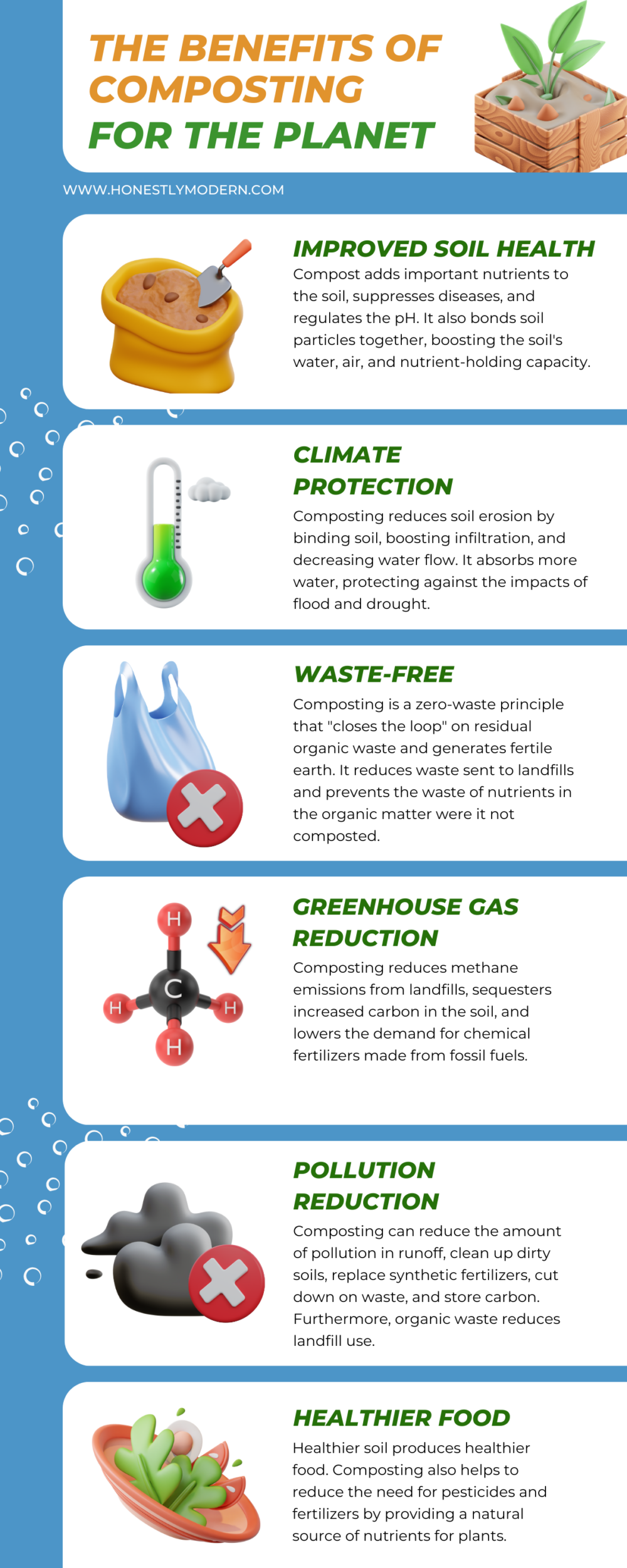
11 Important Benefits of Composting
So… Let’s dive into the benefits of composting, and hopefully I can convince a whole bunch of you to stop throwing your leftovers in the trash or the garbage disposal and instead send them to a compost pile somewhere in your community. If you’re interested in the science of composting, check out this article from our Director of Science as she dives into the chemistry and biology of how composting works and why it’s great for our ecosystems.
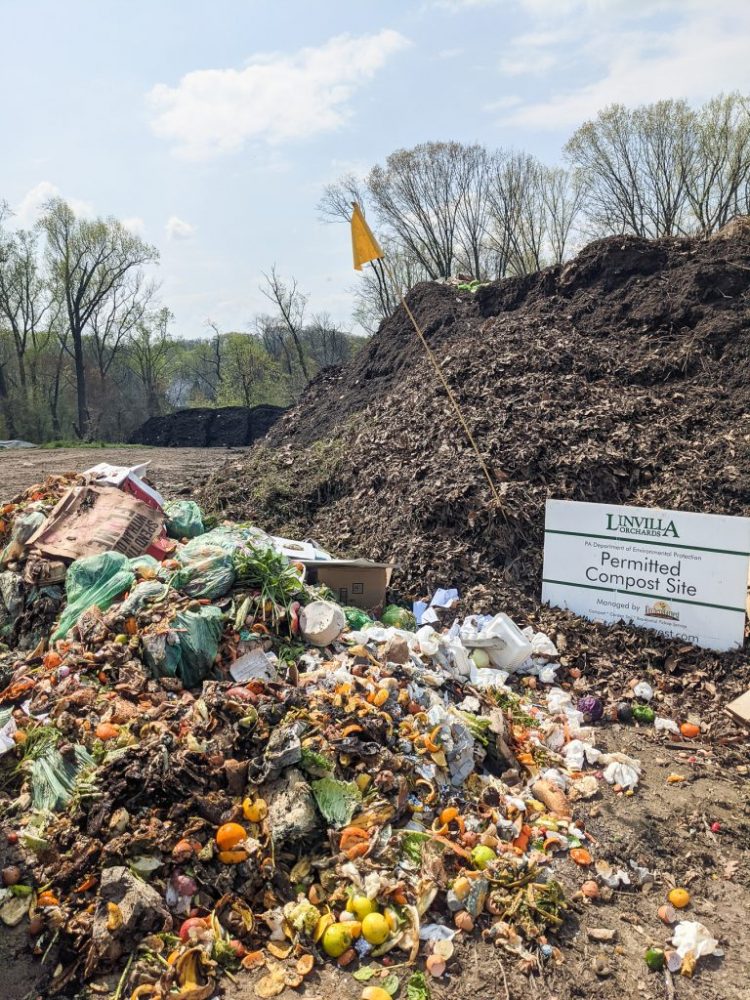
Composting reduces landfill waste and leachate
Composting diverts organic material from landfills, reducing the amount of waste that ends up in these facilities. According to data from the Environmental Protection Agency (EPA) from 2018 (the most recent year available as of the time of this writing), organic material makes up about 30% of the municipal solid waste stream in the United States.
In 2019 alone, we threw away 66 million tons of food, and only 3.3 million tons (or about 5%) were composted. Almost 40 million tons of food went right into the landfill. Think about that; we produced 40 million tons of food, transported it around the country and the world, stored it, and then ultimately just threw it away. What a bummer!
Reduce landfill waste
We know that composting reduces waste sent to landfills based on data from cities that have implemented composting programs. In San Francisco, for example, the city started a mandatory composting program that requires residents and businesses to separate their food scraps and yard waste from their garbage. This program has significantly reduced the amount of waste that is sent to landfills, which has extended the lifespan of existing landfills and reduced the need for new ones.
Landfills are the most common method of disposing of waste, including organic waste, but they have several negative environmental impacts. Landfills take up valuable land, emit greenhouse gases, and release toxic chemicals into the soil and water. They’re very often in marginalized communities, making them an environmental justice issue as well.
Reduce leachate
Composting also reduces the amount of leachate that is produced by landfills. Leachate is a toxic liquid that is produced by the decomposition of waste in landfills. According to the EPA, leachate forms when rainwater filters through wastes placed in a landfill. When this liquid comes in contact with buried wastes, it leaches (or draws out) chemicals or constituents from those wastes. When leachate seeps into the soil and water, it can contaminate the environment and harm wildlife. Composting diverts organic waste from landfills, which reduces the amount of leachate that is produced.
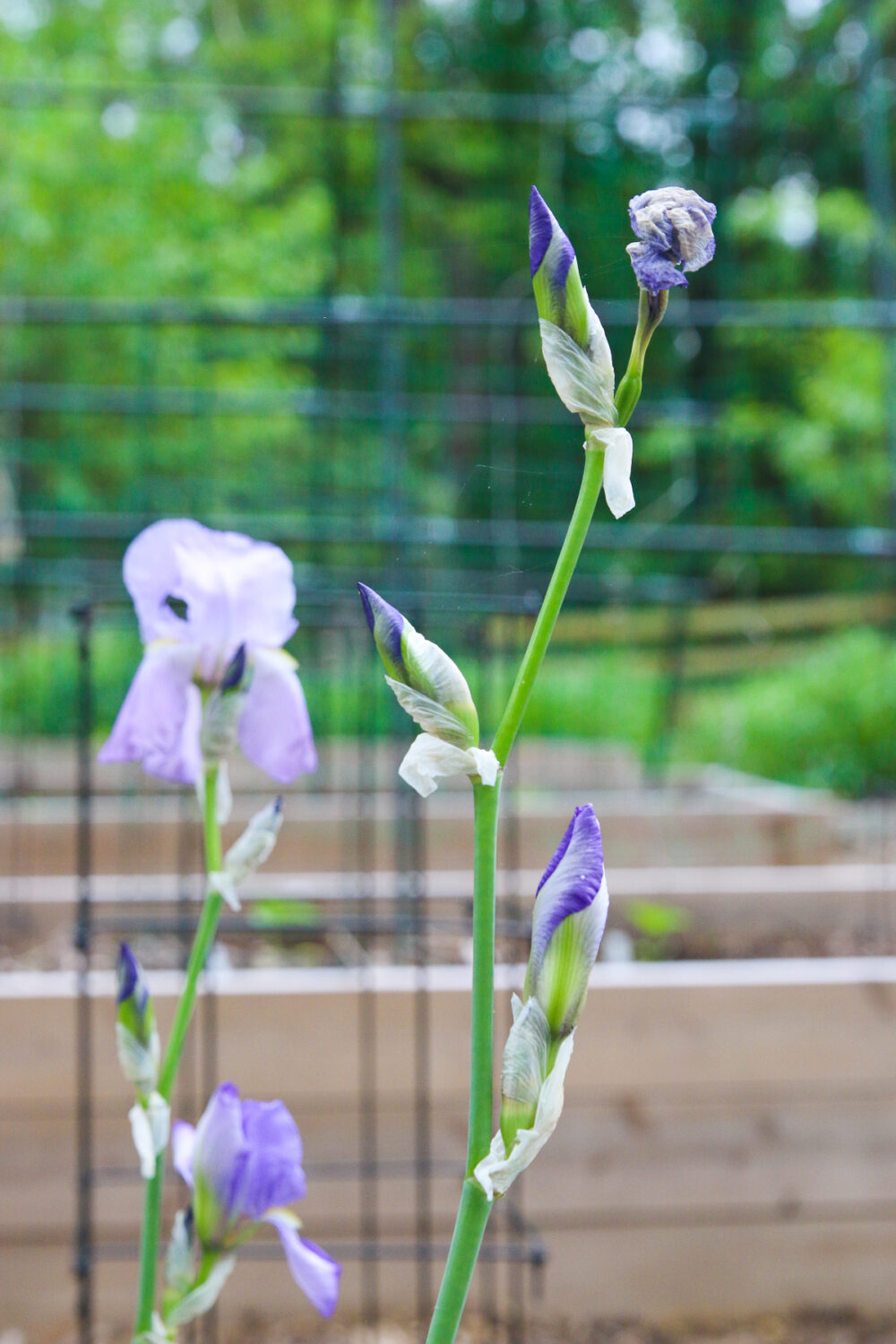
Composting improves soil health & plant health
Compost is a nutrient-rich soil amendment that can improve soil health and plant growth. Compost provides plants with essential nutrients, such as nitrogen, phosphorus, potassium, and many other micronutrients. It also improves soil structure, water retention, and infiltration. Additionally, compost contains microorganisms that help break down organic matter and suppress plant diseases.
Due to use the of chemical fertilizers and other industrial agriculture practices implemented over long periods of time, topsoil is eroding quickly and soil quality is diminishing. Chemical fertilizers get in the way of the symbiotic relationships between microorganisms in the soil and plants growing in the soil, ultimately resulting in a loss of biodiversity and life in the soil.
Adding compost to existing soil helps reverse some of these harmful trends. Compost promotes soil health, healthy plant growth, and disease resistance in the following ways:
- Nutrient enrichment: Compost is rich in essential nutrients, such as nitrogen, phosphorus, and potassium, which are vital for plant growth. When added to the soil, compost releases these nutrients slowly, providing a consistent supply to plants over time. This nutrient enrichment supports vigorous plant growth, development, and overall health.
- Soil structure improvement: Compost enhances soil structure by improving its texture, porosity, and water-holding capacity. Organic matter helps to bind soil particles together, creating larger soil aggregates. These larger aggregates allow for better infiltration of water and air, which can improve root growth and plant health. Specifically, compost helps sandy soils retain moisture and nutrients, while it aids in loosening compacted clay soils, allowing better root penetration, air circulation, and drainage. Healthy soil structure enables plants to establish strong root systems and access essential resources effectively.
- Organic matter addition: Compost is a source of organic matter, which serves as food for beneficial microorganisms and earthworms in the soil. These organisms break down the organic matter, releasing nutrients in forms that plants can readily absorb. The presence of abundant microorganisms helps create a balanced soil ecosystem, supporting plant growth and nutrient cycling.
- Soil fertility enhancement: Compost improves soil fertility over time by increasing its organic matter content. As the organic matter decomposes, it releases humus—a dark, stable form of organic matter. Humus improves soil fertility by providing a reservoir for nutrients, improving nutrient retention, and enhancing the cation exchange capacity of the soil. This allows plants to access nutrients more efficiently.
- Disease suppression: Compost can help suppress plant diseases through various mechanisms. Firstly, compost contains beneficial microorganisms that compete with and inhibit harmful pathogens, reducing their impact on plants. Secondly, compost-amended soil supports a diverse microbial community, including beneficial fungi and bacteria, which can directly attack or outcompete plant pathogens. Thirdly, the organic matter in compost enhances the soil’s ability to retain moisture, which helps maintain plant health and resilience to diseases.
- pH regulation: Compost has a neutralizing effect on soil pH. It can buffer excessively acidic or alkaline soils, bringing them closer to an optimal pH range for plant growth. Proper soil pH allows plants to access nutrients effectively, as nutrient availability is influenced by pH levels.
- Reduced nutrient leaching: Compost aids in reducing nutrient leaching, which is the loss of nutrients from the soil due to excessive rainfall or irrigation. The organic matter in compost helps retain nutrients in the root zone, preventing their leaching beyond the reach of plants. This ensures more efficient use of applied fertilizers and minimizes environmental pollution caused by nutrient runoff.
By improving soil fertility, structure, microbial activity, and nutrient availability, compost provides an ideal environment for plants to thrive. The overall result is healthier plants with enhanced growth, increased vigor, and improved resistance to pests and diseases.
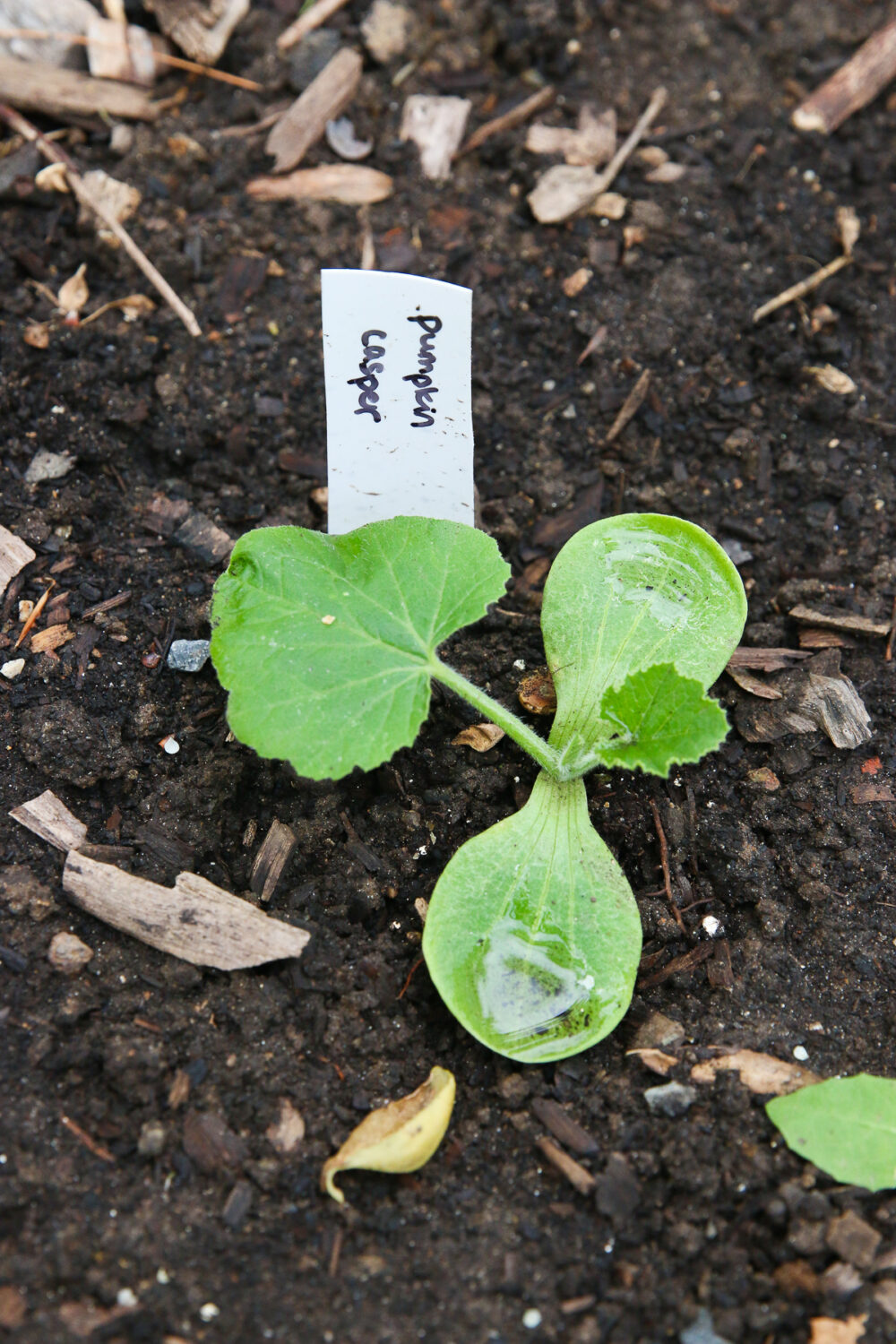
Composting increases water retention of soil
Compost improves soil’s water-holding capacity, reducing water runoff and enhancing the efficiency of irrigation. The humus created by composting can hold up to 90% of its weight in water, which can help to prevent soil from drying out during dry periods. This increased water retention can also help to reduce the need for irrigation, which can save water and reduce water bills.
Beyond financial benefits, increased water retention in the soil helps alleviate the harmful impacts of floods and droughts, which are becoming more common due to climate change. When areas flood, healthy soil can absorb more water and prevent excess water from damaging the community. During droughts, healthy soil can retain more water to alleviate the impacts of an extended period without precipitation.
There are several elements of compost that help make it capable of helping soil hold more water including:
- Improved soil structure: Compost enhances soil structure by improving its texture and aggregation. It helps sandy soils retain water by increasing their ability to hold moisture, preventing rapid water drainage. In clay soils, compost helps loosen compacted particles, allowing better water infiltration and reducing water runoff.
- Increased organic matter content: Compost is rich in organic matter, which acts like a sponge, capable of holding water. When incorporated into the soil, compost increases the organic matter content, thereby enhancing the soil’s water-holding capacity. Organic matter forms pore spaces in the soil, creating tiny reservoirs that can store water for plant use during dry periods.
- Enhanced soil porosity: Compost-amended soil has improved porosity, meaning it contains more open spaces or pores. These pores allow water to infiltrate into the soil rather than running off the surface. Compost helps create a balance between large and small pores, facilitating both water movement and retention in the soil.
- Reduced soil compaction: Compost helps alleviate soil compaction, a condition where soil particles are tightly packed together, reducing pore spaces and limiting water infiltration and retention. By improving soil structure and promoting root penetration, compost reduces compaction, allowing water to permeate the soil more effectively and be retained.
- Surface mulching effect: When compost is applied as a mulch layer on the soil surface, it acts as a protective barrier. This layer helps reduce evaporation by shielding the soil from direct sunlight and wind exposure, which can lead to water loss. The mulching effect of compost helps retain moisture in the soil and prevents rapid drying.
- Improved root development: Compost-enriched soil provides an ideal environment for root growth and development. The presence of organic matter and improved soil structure encourage root proliferation and exploration. Well-developed root systems can access water stored in the soil, improving water uptake and utilization by plants.
- Increased soil organic matter decomposition: As compost decomposes over time, it releases substances called humic acids. Humic acids have the ability to bind to soil particles, improving soil structure and water-holding capacity. This binding effect helps prevent water from draining too quickly and increases water retention in the soil.
By enhancing soil structure, increasing organic matter content, promoting porosity, reducing compaction, acting as a surface mulch, supporting root development, and releasing substances that improve water-holding capacity, compost significantly contributes to water retention in the soil. This leads to improved soil moisture levels, better availability of water for plant uptake, and reduced water loss through runoff and evaporation.
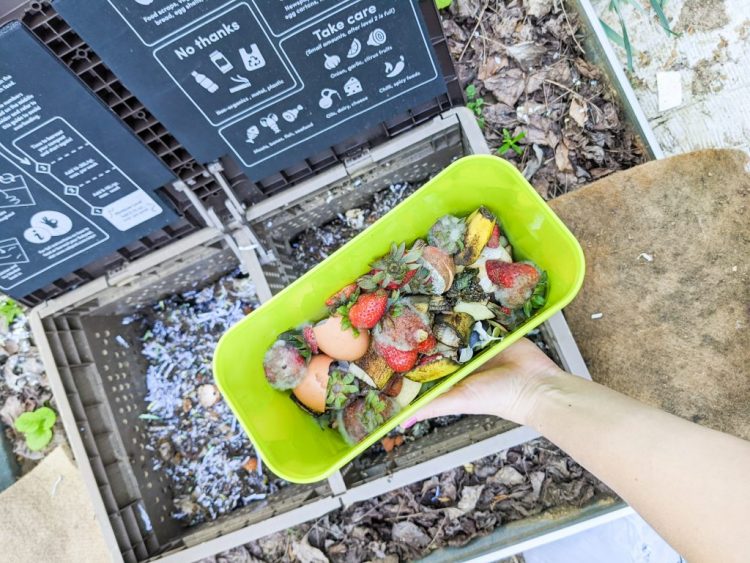
Composting reduces greenhouse gas emissions
When organic waste is sent to landfills, it decomposes anaerobically, which means without oxygen. This process produces methane, a potent greenhouse gas that is 25 times more harmful than carbon dioxide.
Composting, on the other hand, is a natural process that transforms organic waste into a nutrient-rich soil amendment. It’s an aerobic process that involves the breakdown of organic matter by microorganisms in the presence of oxygen.
Composting produces a bit of carbon dioxide, which is a less harmful greenhouse gas relative to methane, but composting releases significantly fewer greenhouse gases than would be produced were that same organic waste to be sent to a landfill.
According to a study published in the Journal of Environmental Quality, composting can significantly reduce the amount of methane that is produced by landfills. Composting diverts organic waste from landfills, which reduces the amount of organic matter that is available to decompose anaerobically.
Composting also reduces the need for chemical fertilizers, which are often produced using fossil fuels and contribute to carbon emissions. Furthermore, when compost can be produced near the farms that need it, it reduces carbon emissions from transportation that is no longer required to move chemical fertilizers around the world (i.e. those that would otherwise be used to feed plant and crop growth).
Composting increases carbon sequestration in the soil
Composting promotes the capture and storage of carbon in the soil, mitigating climate change by reducing greenhouse gas emissions already present in the atmosphere. Compost helps soil sequester more carbon through the following mechanisms:
- Organic matter addition: Compost is rich in organic matter, which consists of carbon-based compounds. When compost is incorporated into the soil, it increases the overall organic matter content. This additional organic matter serves as a long-term carbon source for the soil.
- Slow carbon release: The organic matter in compost decomposes gradually over time. As it decomposes, carbon compounds are broken down and released into the soil. This slow release of carbon allows for a more sustained and prolonged carbon sequestration process.
- Stabilization of carbon: Compost contributes to the formation of stable soil organic matter, known as humus. Humus is a dark, carbon-rich substance that can remain in the soil for extended periods, effectively sequestering carbon. Compared to fresh organic matter, humus is more resistant to decomposition and can persist in the soil for decades to centuries.
- Microbial activity: Compost enhances microbial activity in the soil. The microorganisms present in compost, along with the existing soil microorganisms, contribute to the decomposition of organic matter and the formation of stable soil carbon. These microorganisms help convert composted material into more stable carbon compounds, reducing the loss of carbon as carbon dioxide (CO2) through microbial respiration.
- Reduced soil disturbance: Compost-amended soil tends to have improved structure, moisture retention, and nutrient availability. This leads to reduced soil disturbance practices, such as tilling, which can release stored carbon into the atmosphere. By minimizing soil disturbance, composting helps maintain carbon within the soil profile.
- Enhanced plant growth: Compost-amended soil promotes healthier plant growth, resulting in increased carbon inputs into the soil through photosynthesis. Plants absorb atmospheric carbon dioxide (CO2) during photosynthesis, convert it into plant biomass, and allocate a portion of that carbon below ground as root exudates and organic matter. These plant inputs contribute to carbon sequestration in the soil.
- Increased soil aggregation: Compost improves soil aggregation, which refers to the formation of stable soil aggregates or clumps. Aggregated soil has more pore spaces, promoting better aeration and water infiltration. These pore spaces create microhabitats that protect organic matter from rapid decomposition and enhance carbon sequestration.
By increasing the organic matter content, stabilizing carbon, promoting microbial activity, reducing soil disturbance, and enhancing plant growth, composting contributes to the sequestration of carbon in the soil. This process helps mitigate climate change by removing carbon dioxide from the atmosphere and storing it in a more stable form within the soil ecosystem.
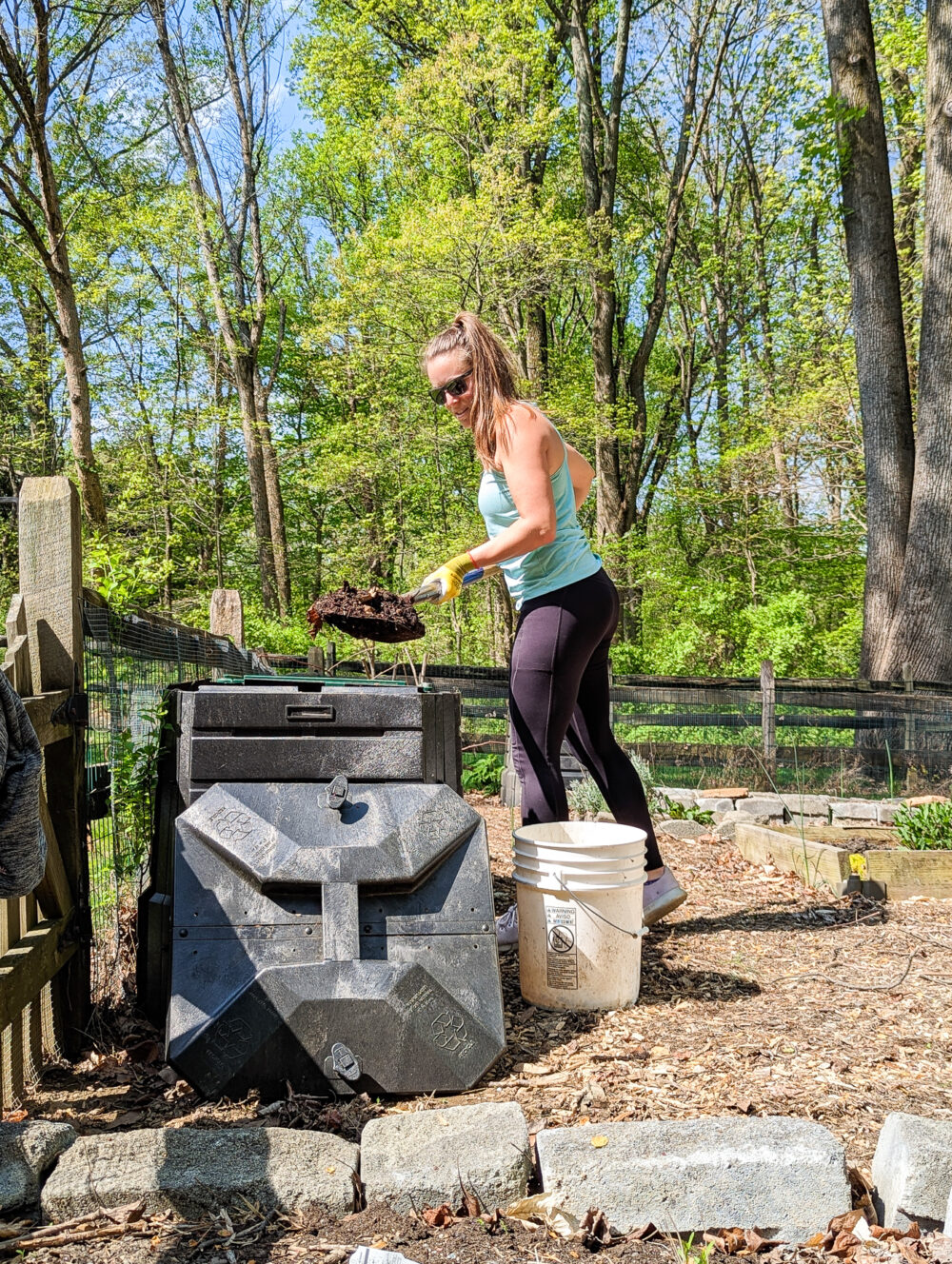
Composting saves money
Composting is not just good environmental practice, but it can often save money for many different parties. There are benefits of composting that help farmers, gardeners, and municipalities save money through various means including:
- Reduced fertilizer costs: Compost is a nutrient-rich organic fertilizer. By utilizing compost in place of or as a supplement to commercial fertilizers, farmers and gardeners can reduce their reliance on synthetic fertilizers. This leads to cost savings as a result of purchasing fewer fertilizers, especially for large-scale operations. (Thanks to capitalism, this is one reason composting has not been adopted as broadly as we would like. It behooves Big Oil and Big Agriculture companies that sell chemical fertilizers, made from fossil fuels, to keep selling synthetic fertilizers to farmers. Farmers need less of the synthetic stuff if they use organic compost instead, so certain large corporations have the incentive to delay the adoption of compost soil amendment alternatives.)
- Soil amendment and improvement: Compost enhances soil fertility, structure, and nutrient content. By incorporating compost into their soil, farmers and gardeners can improve soil health and quality. Healthy soil requires fewer amendments and inputs, reducing the need for costly soil additives or amendments.
- Waste management savings: Composting diverts organic waste from landfills, reducing waste management costs for municipalities. Organic waste is often heavy and contributes to landfill fees. By composting, municipalities can decrease the volume of waste requiring disposal, potentially reducing landfill expenses.
- Reduced water usage: Compost improves soil’s water-holding capacity and reduces water runoff. This can lead to water savings for farmers and gardeners as they require less irrigation to maintain adequate soil moisture levels. The reduced need for irrigation translates into lower water usage and associated costs.
- Pest and disease control: Healthy, well-nourished plants supported by compost-enriched soil have increased resistance to pests and diseases. By promoting plant health and boosting their natural defenses, farmers and gardeners can potentially reduce the need for chemical pesticides or treatments, leading to further cost savings.
- Soil erosion prevention: Compost-amended soil has improved structure, porosity, and moisture retention, as mentioned above. These qualities help prevent soil erosion caused by wind or water. By reducing soil erosion, farmers can retain valuable topsoil, maintain nutrient-rich soil, and avoid the need for costly erosion control measures.
- Municipal landfill savings: Composting organic waste reduces the amount of waste sent to landfills. This can help extend the lifespan of existing landfills and delay the need for costly landfill expansions or the construction of new ones. Municipalities can save significant expenses by managing waste through composting instead of landfilling.
- Community engagement and partnerships: Composting initiatives often involve community participation and collaboration. Farmers, gardeners, and municipalities can engage the community through composting programs, education, and partnerships. Such collaborations can leverage community resources and support, reducing the financial burden on individual farmers or municipalities.
It’s important to note that the cost savings associated with composting can vary depending on the specific context, scale of operation, local conditions, and initial investment required for composting infrastructure. However, overall, composting offers the potential for long-term financial benefits by improving soil health, reducing input costs, optimizing waste management, and fostering sustainable agricultural and gardening practices.

Composting increases community engagement
Composting encourages community involvement, education, and a sense of environmental responsibility by promoting sustainable waste management practices. I’ve experienced this in many ways!
A friend and I connected with neighbors through composting education courses we hosted at local libraries. I met many fellow composters in my community after starting a small curbside composting business. And it’s always a popular topic of conversation when people find out about my passion for something so unique. Here are a few more specific ways composting can increase community engagement:
- Education and awareness: Composting initiatives provide opportunities to educate and raise awareness about the environmental and social benefits of composting. Through workshops, educational programs, or public events, community members can learn about composting techniques, the importance of waste reduction, and the impact of compost on soil health and sustainability. This knowledge empowers individuals to make more informed choices and encourages them to participate in composting efforts.
- Community composting sites: Establishing community composting sites encourages residents to actively participate in composting. These sites may be located in public spaces, community gardens, or neighborhood centers. They provide a convenient and accessible location for community members to deposit their organic waste. People can contribute their food scraps and yard waste to the compost pile or bin, fostering a sense of shared responsibility and collective action. We have even used these to compost while on vacation.
- Volunteer opportunities: Community composting initiatives often rely on volunteers to manage composting operations, such as turning the compost, monitoring temperature and moisture levels, or educating others about composting practices. By involving community members as volunteers, composting programs create opportunities for people to actively engage in composting activities, connect with others who share similar interests, and contribute their time and skills to a meaningful cause.
- Community gardens and urban agriculture: Composting plays a crucial role in supporting community gardens and urban agriculture projects. Compost provides nutrient-rich soil amendments that help nourish plants and promote successful crop cultivation. Community members can participate in gardening activities, work collectively on composting efforts, and share the harvest, fostering a sense of community pride and connection to the local food system.
- Collaboration and partnerships: Composting initiatives often involve collaboration between various stakeholders, such as local governments, community organizations, schools, businesses, and residents. These collaborations foster relationships and partnerships that strengthen community bonds and create shared goals. By working together, community members can pool resources, share knowledge and expertise, and support each other in implementing composting practices.
- Resource sharing and circular economy: Composting encourages resource sharing within the community. For example, community members can donate excess compost to local gardens, farms, or landscaping projects, creating a closed-loop system where organic waste is recycled and used to benefit the local community. This fosters a sense of interdependence and cooperation, as resources are shared and circulated within the community.
- Environmental stewardship and pride: Composting promotes a sense of environmental stewardship and community pride. By actively participating in composting, community members contribute to waste reduction, carbon sequestration, and soil health improvement. They take pride in their efforts to make a positive impact on the environment and create a more sustainable community.
By providing educational opportunities, community composting sites, volunteer roles, collaborative partnerships, shared resources, and a sense of environmental stewardship, composting initiatives engage community members, foster connections, and encourage active participation in sustainable practices.
Personally, I’ve met new friends through composting events and made many connections with others related to our shared interest in growing the community composting initiatives and programs in our area. These efforts contribute to a stronger sense of community, a more sustainable local environment, and a shared commitment to creating a greener future.

Composting provides ecosystem support
Composting supports biodiversity and the natural ecosystem by improving soil quality and providing a habitat for beneficial organisms like earthworms and millions of microbes that live in the soil. These microbes and microorganisms provide benefits to plants, insects, and so many creatures and living things throughout the food web. Composting provides ecosystem support in several ways:
- Soil health and fertility: Composting improves soil health by enriching it with organic matter, nutrients, and beneficial microorganisms, as we touched on above. The addition of compost enhances soil fertility, promoting healthy plant growth and supporting diverse plant communities. Healthy soils provide habitats for a wide range of organisms, including earthworms, insects, and microorganisms, which contribute to nutrient cycling and thriving ecosystem functioning.
- Nutrient cycling: Composting facilitates nutrient cycling within ecosystems. When organic waste is composted, the nutrients it contains are converted by microorganisms into a stable form that can be readily absorbed by plants. Compost releases nutrients gradually over time, ensuring a continuous supply of essential elements for plant growth. By supporting nutrient cycling, composting helps maintain nutrient balance and availability in ecosystems, promoting the health and productivity of plants and other organisms.
- Biodiversity support: Composting practices that incorporate diverse organic materials create favorable conditions for biodiversity. The rich organic matter and microorganisms present in compost attract a wide range of beneficial organisms, including insects, worms, and soil-dwelling organisms. These organisms contribute to nutrient breakdown, decomposition, and soil aeration, fostering a diverse and thriving ecosystem. Increased biodiversity promotes ecosystem resilience and stability.
- Carbon sequestration: Composting plays a role in carbon sequestration, helping to mitigate climate change. When organic waste is composted, the carbon it contains is converted into stable organic matter, which is added to the soil. This sequestered carbon remains stored in the soil for an extended period, reducing the amount of carbon dioxide in the atmosphere. By sequestering carbon, composting contributes to the long-term storage of carbon and helps mitigate greenhouse gas emissions.
- Water management: Composting supports proper water management within ecosystems. Compost-amended soils have improved water-holding capacity and drainage characteristics, reducing the risk of waterlogging and soil erosion. This helps maintain optimal soil moisture levels, which are crucial for plant growth and the survival of soil organisms. By promoting water infiltration and retention, composting supports the hydrological cycle and helps prevent water runoff and associated water pollution.
- Habitat creation: Composting can provide habitat opportunities within ecosystems. Compost piles or bins serve as microhabitats for various organisms, including insects, fungi, and bacteria. These habitats offer shelter, food, and suitable conditions for the growth and reproduction of diverse species. By providing additional habitat niches, composting contributes to biodiversity and ecological balance.
- Reduced environmental impacts: Composting reduces the environmental impacts associated with organic waste management. By diverting organic waste from landfills, composting helps minimize methane emissions (remember that’s where we started?). It also reduces the need for synthetic fertilizers. We talked about this too in that it can save money and reduce methane emissions, but that’s important because too much fertilizer can lead to nutrient runoff and water pollution. Through responsible organic waste management, composting supports sustainable practices that minimize harm to ecosystems and protect water and air quality.
All of these conditions benefit the functioning and resilience of ecosystems, supporting the balance of natural processes, and contributing to the overall health and sustainability of the environment. That’s so many wins for the planet and it’s good for us too!

Composting support a circular economy
This is what sustainability is really all about, reducing our use of new resources and putting good things back into the cycle of life. When we create more circular systems in our economies and lifestyles, we can make the most of the things and resources we already have, including all the nutrients in our food waste and yard waste.
This is especially true when we think about the resiliency of local communities. Keeping resources, money, and knowledge in local communities can help make them much more robust and dynamic in the face of inevitable change over time.
Composting plays a crucial role in supporting a circular economy by closing the loop on organic waste and creating a cycle of resource regeneration. Here’s how composting supports a circular economy:
- Organic waste recycling: Composting diverts organic waste, such as food scraps, yard trimmings, and agricultural residues, from the waste stream. Instead of being disposed of in landfills or incinerated, as we discussed above, these organic materials are transformed into compost through the natural decomposition process. Composting recycles organic waste, turning it into a valuable resource rather than treating it as disposable waste.
- Nutrient recycling: Compost is a nutrient-rich organic fertilizer. Through composting, the nutrients present in organic waste are captured and recycled back into the soil. When compost is applied to agricultural fields, gardens, or landscaping projects, it replenishes essential nutrients, such as nitrogen, phosphorus, and potassium, which are necessary for plant growth. By recycling nutrients from organic waste, composting reduces the need for synthetic fertilizers and minimizes nutrient runoff that can contribute to water pollution.
- Soil improvement: As discussed above in more detail, compost enhances soil fertility, structure, and organic matter content. By incorporating compost into the soil, the organic matter and beneficial microorganisms enrich and revitalize the soil ecosystem. Improved soil health promotes healthy plant growth, increases crop yields, and enhances the resilience of plants to stressors such as drought or pests. Composting provides a sustainable method for improving soil quality without depleting finite resources like fossil fuels (which are used to make synthetic fertilizers) or relying heavily on external inputs.
- Closed-loop systems: When we ensure composting happens locally, the process creates closed-loop systems within local communities. Organic waste generated in households, businesses, or agriculture can be collected, composted, and used to nourish local soils and support local food production. By closing the loop on organic waste, composting reduces the reliance on external resources and supports self-sufficiency within a localized system. This reduces transportation impacts, energy consumption, and the need to extract and produce synthetic fertilizers.
- Localized production and consumption: Composting encourages localized production and consumption of food and other organic products. By utilizing compost locally, farmers, gardeners, and landscapers can enhance their soil fertility and productivity. This supports local food production, reduces the dependence on distant supply chains, and fosters regional resilience. Composting promotes a more self-reliant and sustainable approach to resource utilization.
- Circular waste management: Composting completes the waste management cycle for organic materials. Instead of being treated as waste to be discarded, organic waste becomes a valuable resource that is transformed into compost. This reduces the need for landfilling or incineration, which can have negative environmental impacts, such as greenhouse gas emissions and soil and water pollution. Composting contributes to a more sustainable and efficient waste management system by prioritizing resource recovery and minimizing waste generation. It also helps ensure that waste from one community doesn’t become the problem of another community, a trend that tends to consistently harm already marginalized communities.
By recycling organic waste, reclaiming nutrients, improving soil health, supporting closed-loop systems, promoting localized production and consumption, and completing the waste management cycle, composting aligns with the principles of a circular economy. It maximizes resource efficiency, reduces waste, and supports sustainable practices that prioritize the regeneration and reuse of valuable resources.
Composting is a great environmental solution
As you can see, the benefits of composting for the planet and for our communities abound. With a bit of an investment in infrastructure through municipal initiatives and some regulatory clarifications to make compost easier to process at large-scale facilities, composting could significantly reduce landfill-bound waste, create healthier soil, and benefits farmers and gardeners the world over. Are you ready to start composting yet?

Jen Panaro
Jen Panaro, founder and editor-in-chief of Honestly Modern, is a self-proclaimed composting nerd and advocate for sustainable living for modern families. To find her latest work, subscribe to her newsletter, Stepping Stones.
In her spare time, she’s a serial library book borrower, a messy gardener, and a mom of two boys who spends a lot of time in hockey rinks and on baseball fields.
You can find more of her work at Raising Global Kidizens, an online space to help parents and caregivers raise the next generation of responsible global citizens.

